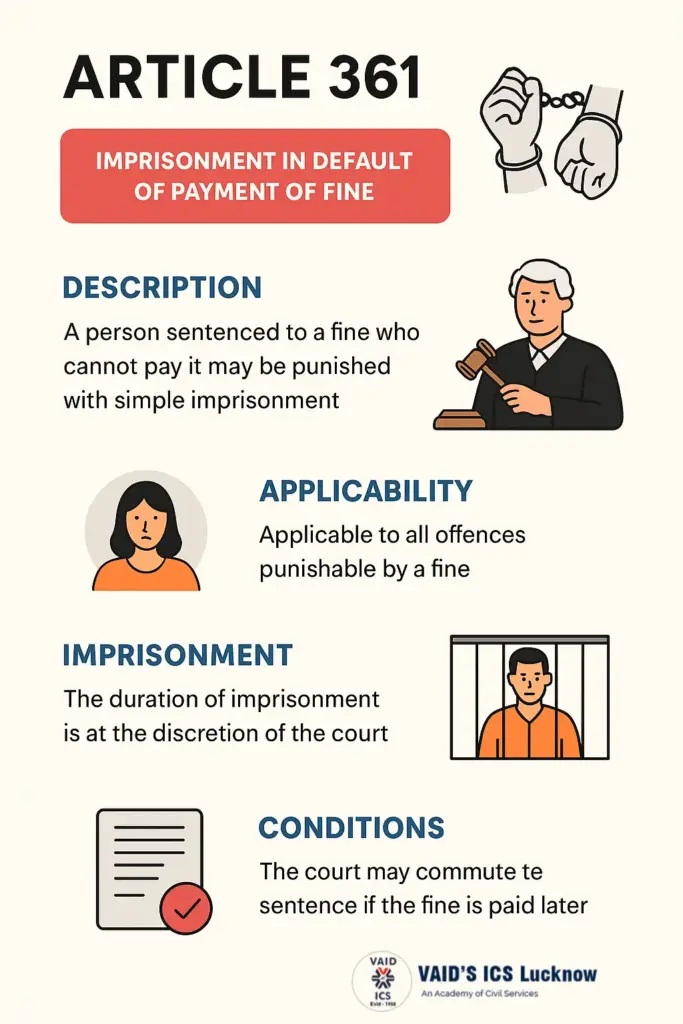August 29, 2025
Extent of Governor’s immunity under Article 361
Why in News
The Tamil Nadu government argued that the Governor cannot act as a “super CM” and has no independent legislative authority.
- The issue arises from the April 8, 2025 judgment where the SC had prescribed time limits for Governors to act on Bills under Article 200, triggering a reference on whether this curtailed gubernatorial discretion.
Key Issues: Article 361
- Can the Governor withhold assent indefinitely on State Bills?
- Does the Governor act independently or only on the aid and advice of the Council of Ministers?
- Does the Governor hold the final authority on a Bill, or simply act as a facilitator?
- Can a State invoke Article 32 against the Governor, claiming violation of fundamental rights?
- Extent of Governor’s immunity under Article 361.
Relevant Constitutional Provisions:
- Article 154: The Governor formally holds the State’s executive authority, but it is carried out through the Council of Ministers.
- Article 163: Governor to act on the aid and advice of the Council of Ministers, except in certain discretionary matters.
- Article 200: Governor’s options regarding State Bills – assent, withhold, return (if not a Money Bill), or reserve for President.
- Article 201: President’s power to decide on State Bills referred by the Governor.
- Article 361: Governor’s immunity from legal proceedings for acts done in office.
Related Case Laws:
- Shamsher Singh vs. State of Punjab (1974) – Governor is the head of constitution &he is bound by aid and advice of the Council of Ministers.
- Nabam Rebia vs. Deputy Speaker (2016) – Governor cannot exercise powers in a manner that destabilizes an elected government.
- April 8, 2025 SC Judgment (TN Governor case) – Prescribed that Governors should act on Bills within a reasonable time, ideally 3 months, to prevent constitutional deadlock.
- Shamsher Singh vs. State of Punjab (1974) – Governor is a constitutional head, bound by aid and advice of the Council of Ministers.
- Rameshwar Prasad vs. Union of India (2006) – Governor cannot misuse discretionary powers to dissolve Assemblies
Committee Recommendations:
- Sarkaria Commission (1988): Governor should act as a bridge, not as an obstacle; discretion must be minimal.
- Punchhi Commission (2010): Time limit for Governor’s action on Bills; suggested constitutional amendments to prevent misuse of office.
- Rajamannar Committee (1971) (set up by Tamil Nadu): Recommended abolition of the post of Governor, citing misuse by the Centre.
Way Forward:
- Time-bound action: Fix a strict constitutional time frame (e.g., 3–6 months) for Governors to act on Bills.
- Codify “discretion”: Limit Governor’s discretionary powers only to clearly defined areas (e.g., constitutional breakdown, hung Assembly).
- Strengthen Cooperative Federalism: Ensure Governors act as neutral constitutional heads, not political agents of the Union.
- Parliamentary reforms: Consider amending Articles 200–201 to avoid deadlocks between elected governments and Governors.
Judicial clarity: SC must balance federal autonomy with checks against arbitrary state laws.
Daily Gist of Article /The Hindu /Indian Express: 24 Sep 2025
September 24, 2025
Gist of Daily News Papers Articles/The Hindu /Indian Express-23 Sep 2025
September 23, 2025
Daily Article Gist/The Hindu/22 Sep 2025
September 22, 2025
Gist of the Hindu/Indian Express: 17 sep 2025
September 17, 2025

